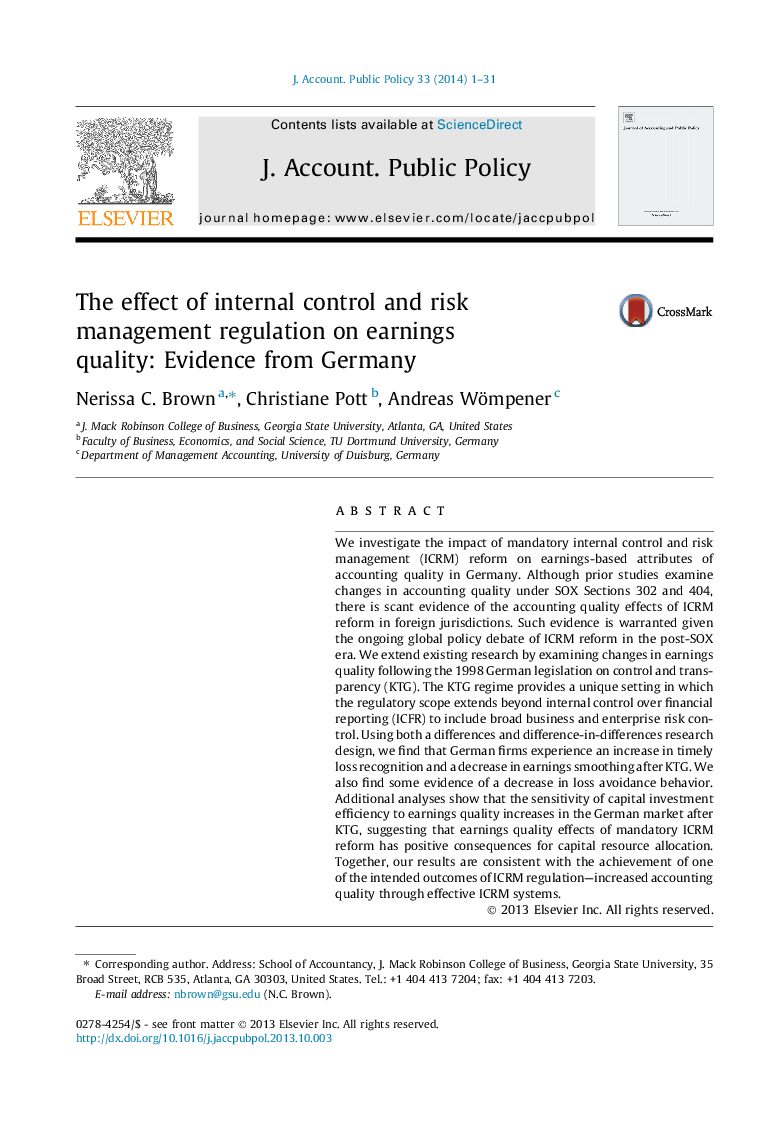| Article ID | Journal | Published Year | Pages | File Type |
|---|---|---|---|---|
| 1005838 | Journal of Accounting and Public Policy | 2014 | 31 Pages |
We investigate the impact of mandatory internal control and risk management (ICRM) reform on earnings-based attributes of accounting quality in Germany. Although prior studies examine changes in accounting quality under SOX Sections 302 and 404, there is scant evidence of the accounting quality effects of ICRM reform in foreign jurisdictions. Such evidence is warranted given the ongoing global policy debate of ICRM reform in the post-SOX era. We extend existing research by examining changes in earnings quality following the 1998 German legislation on control and transparency (KTG). The KTG regime provides a unique setting in which the regulatory scope extends beyond internal control over financial reporting (ICFR) to include broad business and enterprise risk control. Using both a differences and difference-in-differences research design, we find that German firms experience an increase in timely loss recognition and a decrease in earnings smoothing after KTG. We also find some evidence of a decrease in loss avoidance behavior. Additional analyses show that the sensitivity of capital investment efficiency to earnings quality increases in the German market after KTG, suggesting that earnings quality effects of mandatory ICRM reform has positive consequences for capital resource allocation. Together, our results are consistent with the achievement of one of the intended outcomes of ICRM regulation—increased accounting quality through effective ICRM systems.
